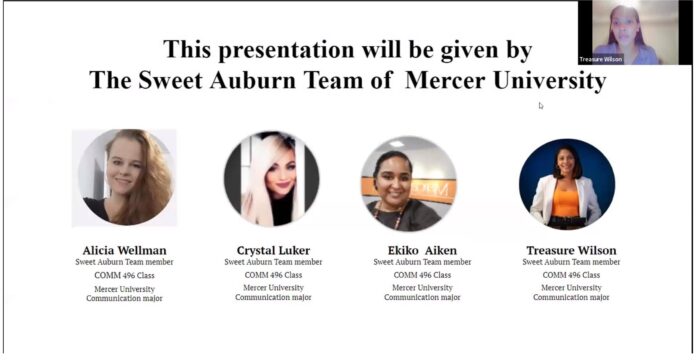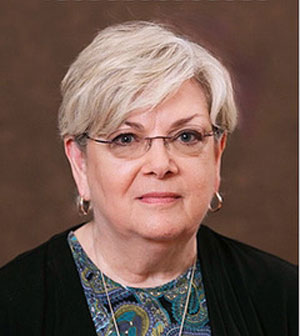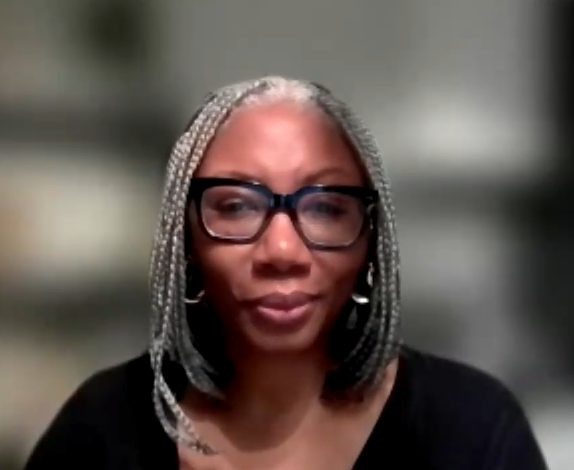
A campaign plan developed by four Mercer University students is helping garner support for a community project in a historic Atlanta neighborhood.
Last semester, four students in Dr. Arla Bernstein’s Integrated Communication Capstone course created an Ecocultural Advocacy Campaign Plan for a new community garden in the Sweet Auburn Historic District, the birthplace of civil rights leader Dr. Martin Luther King Jr. Plans are in the works for the community garden to be built and planted later this month.
Students Ekiko Aiken, Crystal Luker, Ali Wellman and Treasure Wilson developed their campaign in consultation with the Historic District Development Corporation, a nonprofit co-founded by Coretta Scott King that leads revitalization and preservation initiatives in the neighborhood, and the corporation’s CEO, Cheneé Joseph.

“Sweet Auburn carries the legacy of civil rights on its soil,” the students wrote in their 40-page campaign plan. “This campaign can nourish the local community, spark environmental renewal, and restore vibrancy when grounded in the community’s needs and dreams. More than growing produce, these community gardens cultivated by local hands can foster health, potential, and a brighter future where movers and shakers once walked. However, this vision can only become a reality when the residents are empowered, educated, and actively participate in nurturing the soil themselves, together.”
Dr. Bernstein, associate professor of communication in the College of Professional Advancement, said the students met with Joseph a few times during the semester and presented their final campaign to her via Zoom. They also surveyed residents to gauge their feelings about community gardens.
“The ideas and goals that were presented here were part of the actual grant application we submitted, so from an alignment standpoint, it was an affirmation for us that the way we were looking at the gardens was correct,” Joseph said after the students’ presentation during the Zoom meeting.
Aiken, who completed her communications degree with this course, said she interviewed a local farmer to get a better understanding of urban farming and community gardening.
“We were kind of all hands on deck. It was really a team of leaders,” she said.
A major portion of the students’ report was a literature review of scholarly research about community gardens, Dr. Bernstein said. They provided information on the benefits of community gardens, why community involvement is necessary, what motivates people to participate, environmental concerns that need to be addressed, and the importance of signage for the gardens. With guidance from Dr. Bernstein and Associate Professor of Communication Dr. J. Thompson Biggers, they also conducted a Strengths, Weaknesses, Opportunities and Needs analysis of the Historic District Development Corporation.

“Community gardens have ecological value and provide food but often also have historic and cultural value. With Sweet Auburn, the value is tied to the legacy of Martin Luther King Jr.,” Dr. Bernstein said. “The students were very motivated and inspired by the fact that the Historic District Development Corporation considers it one of their missions to redevelop or revitalize that area in context of the legacy of Martin Luther King Jr.”
Using their research and applying concepts from their textbook, the Mercer team created a detailed plan for promoting the community garden, including through social media and special events, and building community engagement and trust. The campaign included goals and objectives, as well as strategies and tactics for achieving them.
“They learned a lot about strategic planning and how to develop a campaign,” Dr. Bernstein said. “Hopefully if they have the opportunity, they can transfer that knowledge and skills over to other projects. In addition to learning about community gardens, they learned about the process of strategic campaign plans in a larger sense.”
Aiken said working with a real client made the work more intense but also more purposeful.
“We weren’t just doing an assignment for practice,” she said. “It was very rewarding, and it definitely helped build our confidence with moving forward in our careers and being able to feel comfortable going into a new environment knowing we actually have some experience.”
Aiken plans to focus her career on health communication and patient advocacy and serve marginalized communities, and she recently began working with Endeavor Health in Chicago. The capstone project provided her with more context on the role that nutrition plays in the health of a community.
“I lived in Atlanta for over 20 years, and I know the Sweet Auburn community well,” she said. “It’s nice to know I can still contribute to the community that really developed me as a young adult.”









